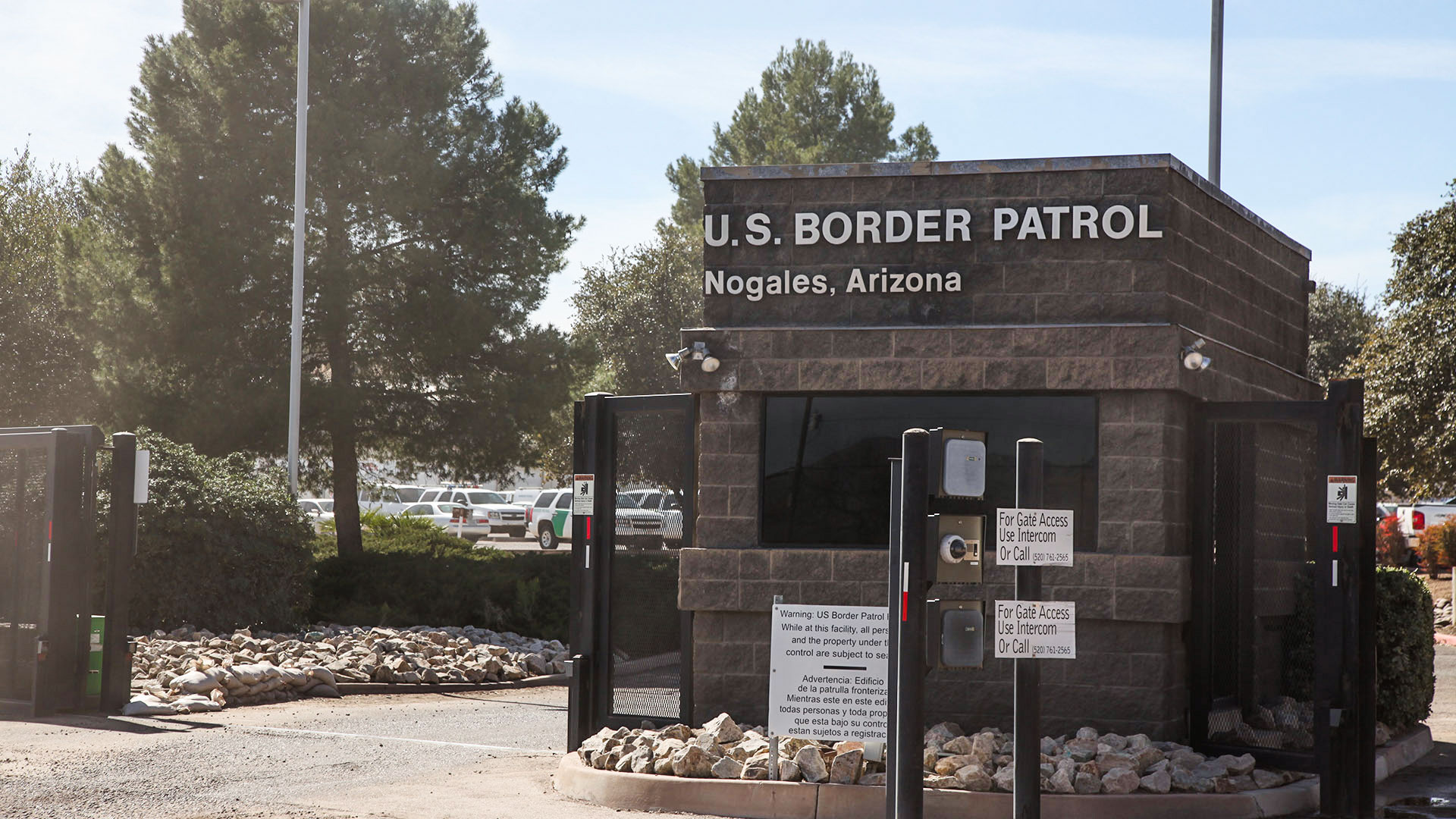 The gate at the Nogales Border Patrol Station, February 2017.
The gate at the Nogales Border Patrol Station, February 2017.
The U.S. Border Patrol is struggling to keep its ranks filled with qualified officers amid calls from President Donald Trump for thousands of new officers, and agencies may be looking to make the process swifter.
It’s tough to get hired to become an agent, especially in the Border Patrol agent. And an internal Customs and Border Protection memo released earlier this week shows that the agency is looking to relax some of those hiring requirements.
For the past three years, the U.S. Border Patrol has been using recruitment videos to try to fill a gap in its ranks. It’s the largest law enforcement agency in the country but is still just shy of 2,000 people. That was the case even before President Donald Trump mandated that it bring in 5,000 more.
Recruiters will make four stops from the Arizona border up to Phoenix this week alone.
“We’re the nation’s sentinels. We’re in the first lines. We’re the first line of defense when it comes to patrolling the United States,” said Vicente Paco, a spokesman for the Border Patrol’s Tucson Sector. Rejection rates are high and it takes about 200 applicants to finally fill one position, he said.
“One of the things we do, we go to job fairs. We partner up with colleges and universities to look for candidates that are within the demographic of agents that we’re looking for.”
The Border Patrol also looks for military veterans and former police officers. But some agency critics have said its strict lie detector tests are part of the reason it has such a hard time filling vacancies.
We’re the nation’s sentinels. We’re in the first lines. We’re the first line of defense when it comes to patrolling the United States” - Border Patrol union vice president
Congresswoman Martha McSally told a House committee last year that decorated veterans had failed the exam, “coupled with bizarre-sounding behavior on behalf of polygraph examiners.”
One former Border Patrol agent reapplied to become an agent and failed his lie detector the second time around.
'This is an interrogation'
Mark, who asked that we not use his full name because he’s applying for other federal law enforcement jobs, was made a conditional salary offer of $39,900 and told to report for basic training in Artesia New Mexico. Then he took the polygraph.
“This is an interrogation. The whole point of this is really to try and get something out of an applicant,” Mark said. “If they’re lying about something, it’s their way to try and get them to come forward.”
Already on edge, Mark was surprised when the examiner asked him if he wanted to leave early and try again, he said.
“He made it sound like it was no big deal. And he convinced me, because I was pretty hesitant to give up. So I cut it loose early and I expected some kind of email or phone call with a reschedule, which did not happen. Instead I was given the boot.”
Mark shared his subsequent rejection letter with the Fronteras Desk. This month, he’s in line for a polygraph with a new federal law enforcement job.
Customs and Border Protection officials say a 2010 anti-corruption law requires them to administer these exams. Immigration and Customs Enforcement, for example, doesn’t have this restriction.
By some estimates, the polygraphs squeeze out two of every three applicants like Mark. Border Patrol union vice-president Shawn Moran said he believes there’s an undisclosed quota driving the high failure rate.
“[The tests] are going anywhere from five to eight hours. Some candidates are being brought back a second day to sit in a chair,” Moran said. “We had a Border Patrol agent just the other day contact us and told us that his sister, who was applying to be a Border Patrol agent, was accused of being a cartel member and that all her family members must be cartel members. And there’s really no proof as to why they make these accusations.”
There’s also no proof they were wrong. The agency does appear to be trying to ease the application process by waiving the polygraph for applicants who have already worked in sensitive jobs, such as certain military positions.
According to a CBP memo released by the union, the agency hopes to boost its hiring numbers from 480 to more than 917, at a cost of about $2 billion.


By submitting your comments, you hereby give AZPM the right to post your comments and potentially use them in any other form of media operated by this institution.